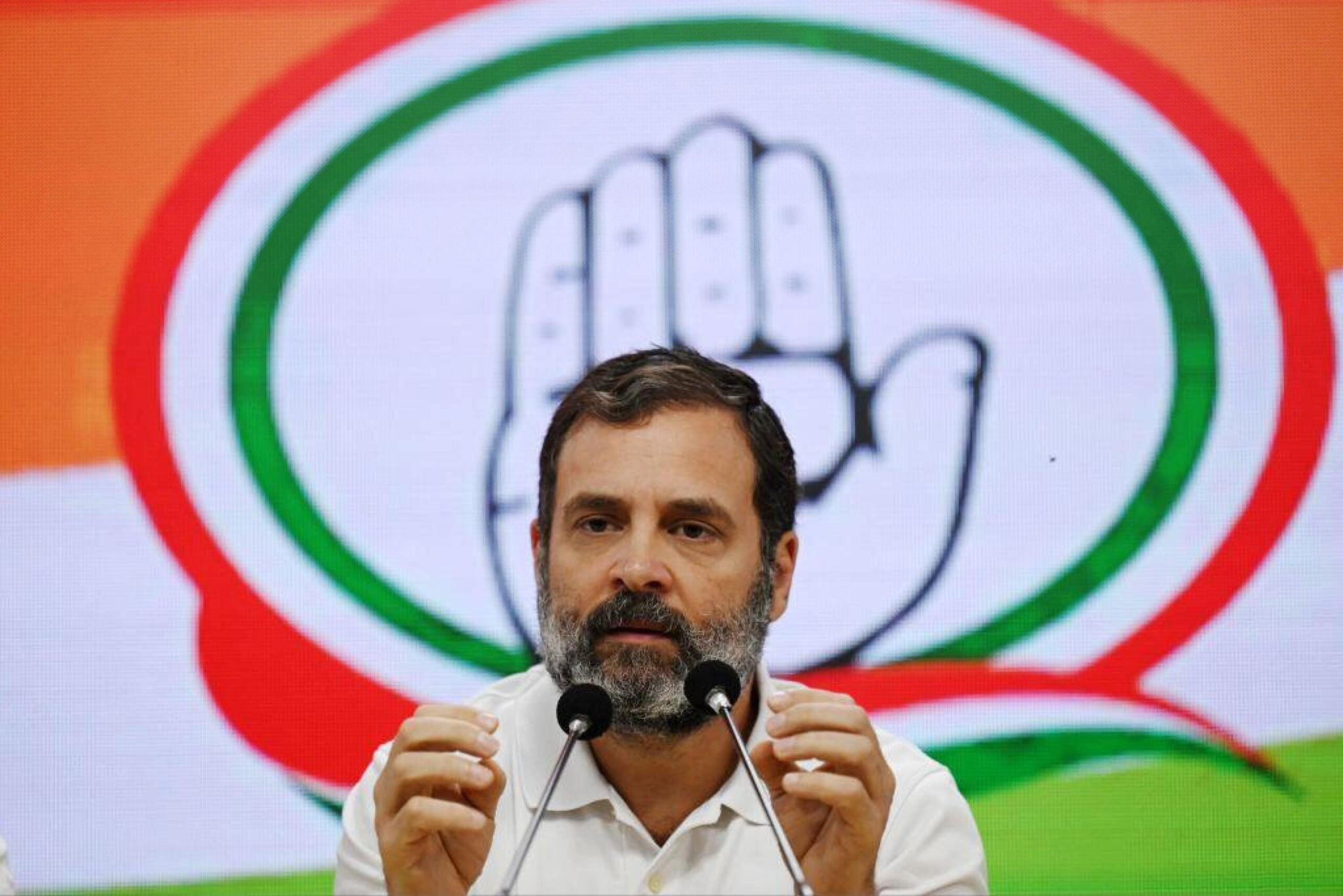Introduction | Rahul Gandhi
Today, let’s delve into the realm of Indian politics and explore the nuanced personality of Rahul Gandhi, a prominent figure in the Indian National Congress. As a scion of the famed Nehru-Gandhi family, Rahul Gandhi has been a central figure in Indian politics, known for his unique leadership style and influence within the party. Join me as we uncover the key aspects of his political career and the impact he has had on the Indian political landscape.
Rahul Gandhi’s Political Journey
Rahul Gandhi is a prominent Indian politician and a member of the Indian National Congress. His family background, hailing from the Nehru-Gandhi political dynasty, has contributed to his early involvement in politics. Over the years, he has held various positions within the Indian National Congress, including serving as the Vice-President of the party. Throughout his political journey, he has faced both support and criticism, solidifying his position as an influential figure in Indian politics.
The Role of Rahul Gandhi in Indian National Congress
Rahul Gandhi’s stint as the Vice-President and President of the Indian National Congress has been marked by active involvement in shaping the party’s policies and decision-making processes. His vocal stance on issues related to social justice, empowerment, and economic development has highlighted his commitment to important societal matters. The influence of his leadership has significantly shaped the direction of the Indian National Congress, positioning him as a key figure in the party’s trajectory.
Challenges Faced by Rahul Gandhi in Politics
Facing the challenge of being perceived as a political dynast, Rahul G has encountered skepticism from individuals who believe he has leveraged his family’s political legacy to his advantage. Furthermore, the weight of meeting the high expectations set by prominent family members who have previously held influential positions in Indian politics has added to the pressure on him. In addition, Rahul Gandhi has been under scrutiny for his leadership style and communication skills, garnering both support and criticism from various quarters. Another formidable obstacle has been managing the intricate dynamics within the Indian National Congress and reconciling differing opinions within the party, presenting a significant challenge for Rahul Gandhi as a prominent figure in Indian politics.
Rahul Gandhi’s Vision for the Indian National Congress
Rahul Gandhi envisions a more inclusive and progressive Indian National Congress that represents the diverse voices of the nation. He aims to empower youth and women within the party, recognizing their crucial role in shaping India’s future. His vision emphasizes sustainable development, social justice, and economic equality as fundamental principles of the Indian National Congress. Additionally, Rahul Gandhi seeks to foster a transparent and accountable political culture within the party, promoting integrity and ethical governance, reflecting his commitment to progressive and inclusive leadership.
Impact of Rahul Gandhi on Indian Politics
Rahul Gandhi’s influential leadership within the Indian National Congress has left a lasting impact on the party’s strategies and policies, shaping the discourse on pivotal social and economic issues within Indian politics. His active engagement with youth and grassroots initiatives has injected a fresh perspective into the political landscape, breathing new life into the party’s approach. Moreover, his instrumental leadership has effectively guided the Indian National Congress through formidable political challenges, solidifying his position as a key figure in navigating the party through complex terrain.
The Leadership Style of Rahul Gandhi
Rahul Gandhi’s inclusive leadership style is characterized by a strong emphasis on collaboration and consensus-building, fostering a sense of unity within the Indian National Congress. He actively seeks to empower the younger generation within the party, injecting a renewed sense of dynamism and innovation. Furthermore, his approach places significant importance on grassroots connect, where he listens to the concerns of the people and advocates for their rights. This empathetic leadership style enables him to connect with individuals from diverse backgrounds, truly understanding their challenges and aspirations, thereby shaping a more inclusive and responsive political environment.
Frequently Asked Questions
What is the public perception of Rahul Gandhi’s leadership within the Indian National Congress?
Rahul Gandhi’s leadership is perceived in diverse ways, as he is seen as a compassionate figure sincerely invested in the well-being of the people, embodying continuity for the Indian National Congress while advocating for longstanding values. However, some question his capability to deliver resolute leadership in demanding circumstances. Nonetheless, many individuals commend his dedication to engaging with grassroots initiatives and infusing the Indian National Congress with innovative viewpoints.
What is Rahul Gandhi’s role in the Indian National Congress?
Rahul Gandhi’s role as a member of the Indian National Congress Working Committee holds significant weight, as it places him at the forefront of the party’s decision-making processes. His active involvement in shaping policies and strategies has greatly influenced the direction and vision of the party. Additionally, as a prominent leader, Rahul Gandhi plays a pivotal role in engaging with the public and representing the Congress party on both national and international stages. His responsibilities extend to campaigning for the party during elections and advocating for social and economic reforms in alignment with the party’s ideology, further solidifying his influence within the Indian National Congress.
Can you provide a brief overview of Rahul Gandhi’s political career?
Rahul Gandhi is undeniably a prominent figure in Indian politics, having served as the Vice-President and President of the Indian National Congress, where he played a pivotal role in shaping the party’s policies and strategies. His representation of the Amethi constituency in Uttar Pradesh reflects his commitment to advocating for social and economic reforms, especially concerning issues related to education, employment, and empowerment. Throughout his political career, he has actively engaged with the youth, demonstrating a genuine dedication to addressing their concerns and aspirations.
What are some key initiatives or campaigns led by Rahul Gandhi?
Rahul Gandhi has been at the forefront of initiatives promoting the empowerment of women and youth, recognizing their pivotal role in nation-building. In addition, he has spearheaded campaigns addressing the challenges faced by farmers, advocating for their rights and welfare. Moreover, his active involvement in initiatives to improve access to education and healthcare for underprivileged communities reflects his commitment to societal upliftment. Furthermore, Rahul Gandhi’s participation in campaigns fostering communal harmony and unity underscores his dedication to promoting diversity and inclusivity across India.
Conclusion
Rahul Gandhi’s journey in Indian politics has been marked by a mix of support and criticism, solidifying his influential position in the Indian National Congress. His active involvement in shaping the party’s policies and decision-making processes has showcased his commitment to societal issues. Despite facing challenges related to his political legacy, family expectations, and leadership style, Rahul Gandhi has remained a key figure within the Indian National Congress, shaping its trajectory and policies. His vision for a more inclusive and progressive Congress, focusing on empowering youth and women, promoting sustainable development, and fostering transparent governance, reflects his dedication to progressive and inclusive leadership. Rahul Gandhi’s influential leadership has left a lasting impact on the party’s strategies and policies, injecting a fresh perspective into the political landscape and effectively guiding the Congress through formidable political challenges. His inclusive and empathetic leadership style, emphasizing collaboration, unity, and grassroots connect, has connected him with diverse backgrounds and shaped a more inclusive and responsive political environment.




